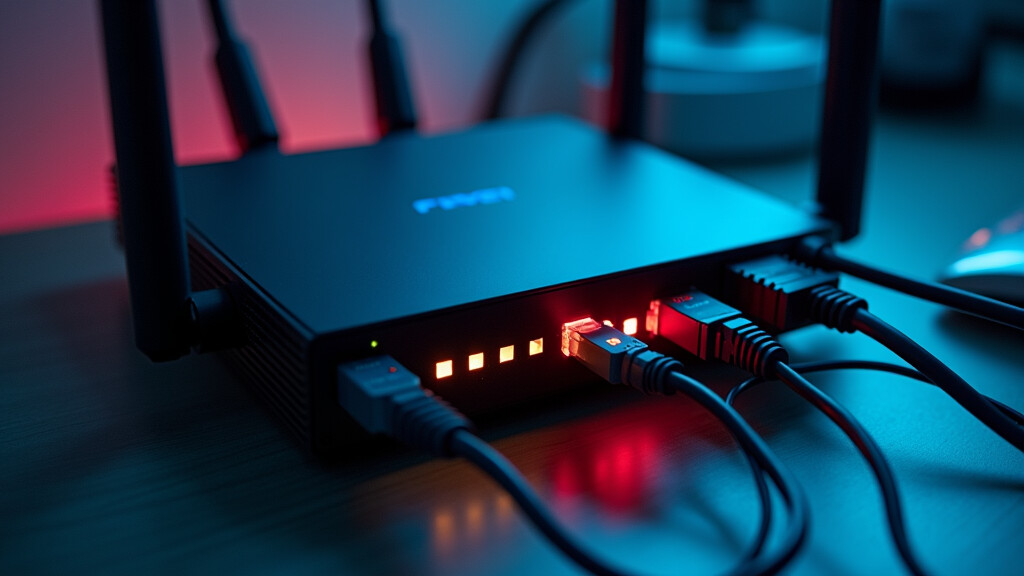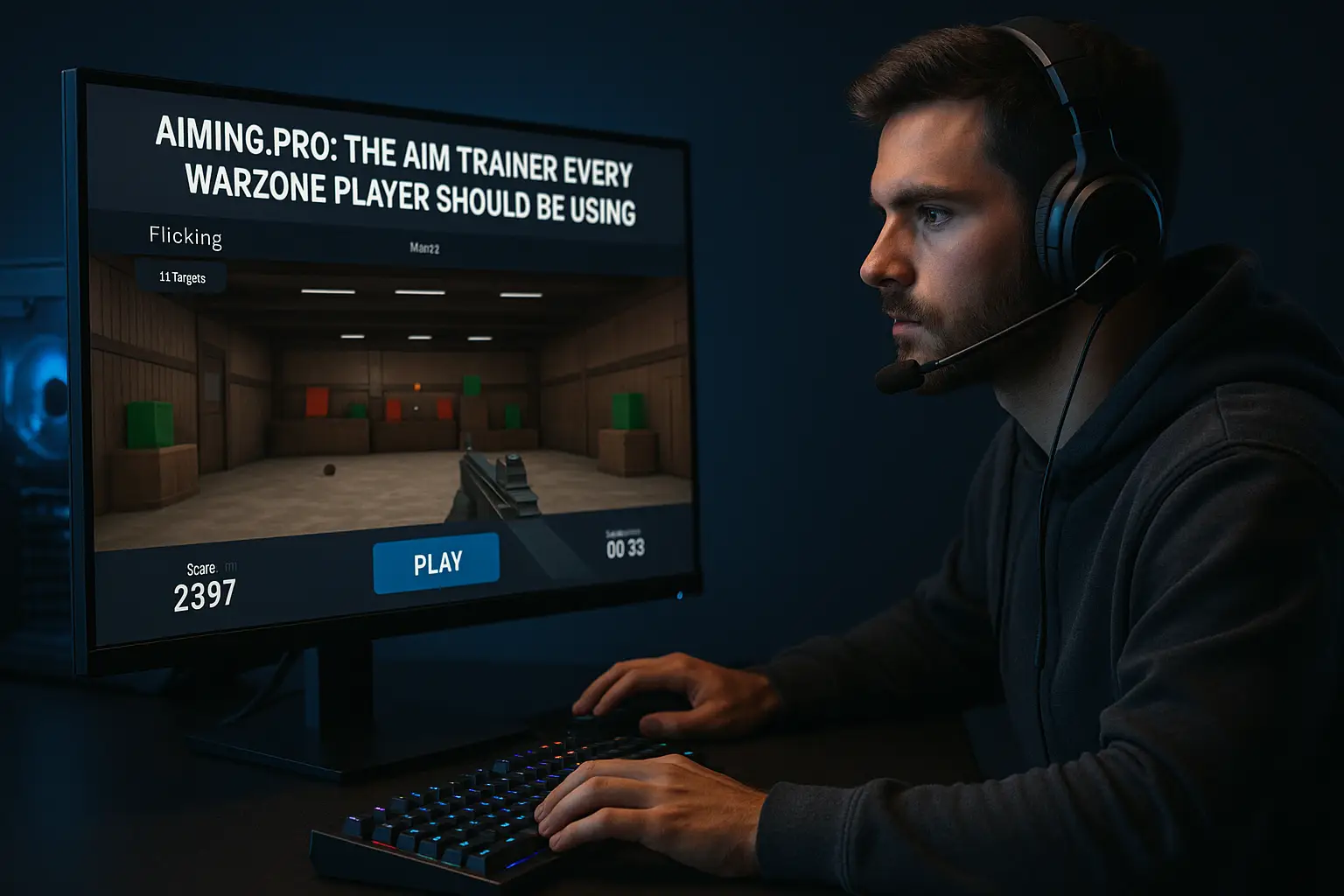
5 Tips to Master the Warzone COD Tactical Layout
Why Every Pro Player Uses the Tactical Layout in Warzone COD What Is the Tactical Layout and How Does It
If you’ve ever dealt with lag or buffering while trying to stream your favorite games, you know how frustrating it can be. In this article, we’ll explore how to optimize your internet connection for seamless game streaming—ensuring smooth performance, stable connections, and an uninterrupted experience. You can significantly reduce latency and enjoy a much more reliable stream by fine-tuning key settings and understanding your network setup.
A stable internet connection is essential for those who stream video games. You might see buffering or quality drops if your connection struggles under high data loads. I have experienced lag during important gaming moments and learned that a few adjustments can improve performance. The goal is to avoid lag spikes that negatively affect gameplay and viewer retention.
Successful game streaming relies on more than just good hardware. A well-tuned network setup is a key part of the process. When data travels smoothly from your computer to the streaming service, you get less jitter and fewer delays. Ensuring a strong signal in a busy digital environment can help you enjoy a more reliable gaming session.
Improving your internet connection begins with understanding networking issues. Setting up a dedicated connection for gaming can reduce interference from other devices. Identifying the proper configuration will help you achieve the best streaming quality possible.
You may want to check your router’s placement and ensure cables are securely attached. Many users face trouble due to crowded channels and outdated hardware. The correct configuration can make a noticeable difference in upload and download speeds.

Each of these steps reinforces your connection. It is helpful to consider your internet setup a system where every component affects overall performance. Even minor improvements can lead to a smoother streaming experience. This means you no longer have to struggle with constant buffering or lag during peak hours, leaving you more time to focus on your game and interact with your audience.
Before making significant changes, it is wise to understand your current internet settings. I began by running speed tests during different times of the day to see how bandwidth fluctuates. These tests help you know your service’s peak performance and where improvements might be necessary.
Your connection may pass tests on paper, but real-life applications such as game streaming put it under stress. I learned that measuring the latency, upload, and download speeds provides valuable insights. In addition, understanding how many devices are connected at once can help you manage network congestion.
This assessment is key to making informed decisions when looking for improvements or considering a service upgrade. By knowing the strengths and weaknesses of your hardware, you can invest in the right additions to your network setup.
Consider keeping a log of performance fluctuations to add more perspective to your current setup. This log can include notes on when other family members use the internet heavily or when external factors, such as weather events, might affect service quality. Over weeks, this detailed record can give you a better understanding of your network environment and help pinpoint exactly when and where issues occur. This extra step makes troubleshooting a more manageable process.
Several simple adjustments improve your streaming performance. Here is a step-by-step guide that helped me achieve a more fluid gaming experience.
This guide represents a proactive approach. Applying these steps has enabled me to reduce lag and enjoy a seamless streaming experience. Over time, continuous review of your settings can keep your connection in top shape. Taking a few extra minutes each week to review your network’s performance can reveal new opportunities to tweak and adjust your setup for even better results.
Optimizing your internet connection for game streaming involves several challenges. I have encountered issues like latency spikes and interference that are common for many users. Recognizing these challenges can help you prepare better solutions.
High latency might cause a delay between your actions and what you see on screen. This can be very important during competitive gaming. You can often limit these delays by monitoring your network’s performance with the proper adjustments.
Network congestion is common in households with several active devices. I found that scheduling heavy internet usage during off-peak hours can help. Another helpful technique is prioritizing the gaming device through the router’s settings. This minimizes the impact of other devices on your streaming quality.
Wireless interference is another hurdle. Electronic appliances and even physical structures can degrade your signal. Choosing a router that supports dual-band frequencies can help manage interference. Separating devices between the available networks can also provide a clearer signal.
Sometimes, the bottleneck is not inside your home but with your Internet Service Provider. I discovered that understanding the details of your plan can help. In some cases, switching to a plan that offers higher upload speeds or data limits ensures smoother streaming. Communicating with your provider also opens the door for technical advice or customized solutions for gamers.
Despite these potential challenges, reasonable adjustments and careful monitoring can significantly reduce disruptions. Understanding and working around these obstacles ensures your streaming remains uninterrupted, even during high-demand periods.
After handling the basics, more advanced methods can further improve your streaming experience. I have explored several techniques that help push connection performance to its limits.
Monitor Your Network in Real Time: Use network monitoring tools to track data usage and bandwidth performance across connected devices. This data helps you pinpoint any anomalies quickly and adjust your settings accordingly. Real-time insights allow you to act swiftly to maintain stability.
Upgrade Network Hardware: Consider investing in a high-performance router or modem. Modern devices support higher data rates and better manage several connections simultaneously. Even if your ISP promises high speeds, your hardware has to be ready for the challenge.
Optimize Router Settings Further: Go to the router settings to adjust the Quality of Service and channel selections more granularly. Customizing these options prioritizes your gaming traffic over less critical data transfers, which can create noticeable improvements during peak hours.
Furthermore, it is essential to revisit your settings periodically. The digital environment changes quickly, and what worked a few months ago may not be as effective today. Keeping up with firmware updates, reading user forums, and testing new configurations can all help you avoid performance issues. This extra effort not only smooths your streaming experience but also gives you a sense of control over your digital setup.
A good stream starts with the right tools. My research led me to focus on essential equipment that supports a strong internet connection. The correct devices not only boost speed but also help maintain reliability.
Investing in a quality router is fundamental—routers designed for heavy traffic support better range, higher speeds, and improved management of background traffic. In addition, modern modems that are compatible with your service provider can improve overall performance.
Choosing the right equipment can strengthen the quality of your stream. These devices provide smoother performance and help reduce troubleshooting time when issues arise. Spending more on trusted hardware often pays off.
Many enthusiasts have questions about optimizing their internet connection for game streaming. I have compiled common questions and answers based on personal experience and trusted advice.
Question: How do I know if my internet speed is sufficient for game streaming?
Answer: Use an online speed test tool to measure download and upload speeds. High-resolution streaming demands a stable upload speed, so compare your results with your streaming platform’s requirements.
Question: Should I always use a wired connection over WiFi?
Answer: Ethernet cables more reliably maintain a stable connection than WiFi, especially during periods of high data use. A wired connection is usually preferred for the best performance.
Question: How can I minimize interruptions from other devices?
Answer: Adjust your router settings to prioritize gaming traffic. Limit background downloads and streaming on other devices while you are gaming.
Question: What role does a VPN play in game streaming?
Answer: A reliable gaming VPN can bypass ISP throttling and protect your data. It may help reduce lag by routing your connection more efficiently, although improper configuration can sometimes introduce a slight delay. However, some publishers prohibit VPNs, and using a VPN can violate the game’s terms of service.
Optimizing your internet connection can significantly improve your game streaming experience. This process involves both basic adjustments and more profound technical tweaks. Focusing on quality hardware, proper router settings, and occasionally using additional tools can lead to a more consistent and enjoyable stream.
Improving network performance requires continuous attention and a willingness to experiment. Try out the tips provided and record your observations. Over time, as you fine-tune your network configuration, you will likely notice significant improvements in speed and overall streaming reliability. Understanding your digital setup and addressing any issues as they arise ensures that your gaming sessions remain smooth and engaging for you and your audience.
Maintaining a reliable and fast connection is essential in today’s connected world. Whether you are a casual streamer or a serious gamer, investing time refining your network setup pays dividends. Remember that even minor adjustments can have an enormous impact. Keep testing, tweaking, and most importantly, enjoy every gaming moment, knowing your internet has your back.
Thanks for reading. Optimizing your internet connection will allow for seamless game streaming. If you found this helpful, read my article on Improving Your Aim: Precision and Efficiency Tips for Call of Duty 6.
Ask Questions: If you have any questions, leave them in the comments below.Happy Gaming!

Why Every Pro Player Uses the Tactical Layout in Warzone COD What Is the Tactical Layout and How Does It

Best Aim Trainer for Warzone (Aiming.pro): Why Every Player Should Be Using It If you’re looking for the Best Aim

Warzone Sprint-to-Fire Delay Explained (Top 5 Secrets to Win More Fights in 2025) Field Brief: Understanding Warzone Sprint-to-Fire Delay “The